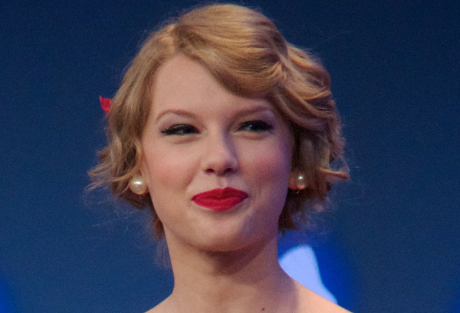Commercial Insights

The world’s number one pop star, Taylor Swift, is not averse to pre-empting a legal challenge.
She recently made moves to trademark phrases used in her chart-topping songs, particularly the phrase ‘This Sick Beat’. Now, in what may seem to be an initially bizarre move, she’s bought the domain names TaylorSwift.porn and TaylorSwift.adult. Does Tay-Tay have plans on branching out into adult video production? Highly doubtful.
Rather, it would appear that Swift is looking to head off internet trolls who will take advantage of the expansion of domain ‘suffixes’. Previously, there were 22 suffixes (.com, .net, .org, you know, the usual), whereas now there are almost 550. Bizarrely, the Internet Corporation for Assigned Names and Numbers (ICANN), have allowed applications to be made for .adult, .porn and .sucks sites.
Microsoft have also bought up Office.porn in order to not have their brand associated with… well, office themed pornography. But there’s also a legal element to Taylor Swift and Microsoft’s decision. Chris McLeod, president of the Institute of Trade Mark Attorneys, explains, “It might seem odd to register exactly what you don’t want to appear online in your own name. But trying to recover such domain names after they’ve been created by others with bad intentions is a complex process, and requires legal proof their use of these domains would be ‘abusive’... the process can be time consuming as well as costly… and wouldn’t be helped by a long and high-profile legal case.”
In other words, Taylor Swift has opted for a ‘prevention is better than cure’ tactic. If she hadn’t registered the sites, she “wouldn’t be able to force any such sites to be taken down unless it was shown that the operators were using the online asset in what is called ‘bad faith’. This can include a variety of improper uses of the website… [including] degrading her public image in such a way that impacts her own profits from her image or is personally abusive.”
But is this akin to trying to dam a river with a pebble? It wouldn’t appear that Taylor Swift has bought the domain name RealTaylorSwift.porn, so she could be fighting a losing battle already.
How is this new development set to affect brands and businesses generally? What happens when Manchester United get knocked out of the League Cup at the hands of MK Dons (sound familiar?). ManchesterUnited.sucks? ManchesterUnitedReally.sucks? This effectively amounts to defamation and slander, and could potentially be libellous. But does a domain name alone amount to defamation? Trade Mark Attorney Jerry Bridge-Butler argues that if a domain is set up and the website is a blank white page, this will, more than likely, not amount to defamation. The mere existance of ManchesterUnited.sucks is akin to a journalist writing a match report and criticising the performance of the team. However, if the site contained pictures and offensive comments of the players, this would be more libellous than the URL itself.
Indeed, it all depends on the interpretation of the Defamation Act 2013. The Act outlines that “A statement is not defamatory unless its publication has caused or is likely to cause serious harm to the reputation of the claimant… harm to the reputation of a body that trades for profit is not “serious harm” unless it has caused or is likely to cause the body serious financial loss.” It’s clear that unless ManchesterUnited.sucks picks up some serious traction, it won’t cause a football club of such magnitude any “serious financial loss”, given that they generated £433.2m of revenue last year. It also depends on whether a URL is considered to be a statement posted on a website. Whilst “It is a defence for the operator to show that it was not the operator who posted the statement on the website”, if a web address were to be considered a “statement posted on the website” the operator would have little defence under the Defamation Act 2013.
If offensive or unsavoury domain names are set up using the name of a brand or trademark, such as Manchester United, ICANN has a Uniform Domain-Name Dispute-Resolution Policy, whereby trademark-based domain-name disputes must be resolved by agreement, court action, or arbitration before a registrar will cancel, suspend, or transfer a domain name. If ManchesterUnited.sucks existed and was seriously damaging the reputation and finances of the club, it is highly likely they would win in a dispute.
The introduction of new domain names are set to open up a whole range of issues to do with trademarks, defamation and intellectual property. An exciting time to be a lawyer in this area!
Academy tools to help you get a job
-

Free Watson Glaser Practice Test
Understand the test format, compare your performance with others, and boost your critical thinking skills.
